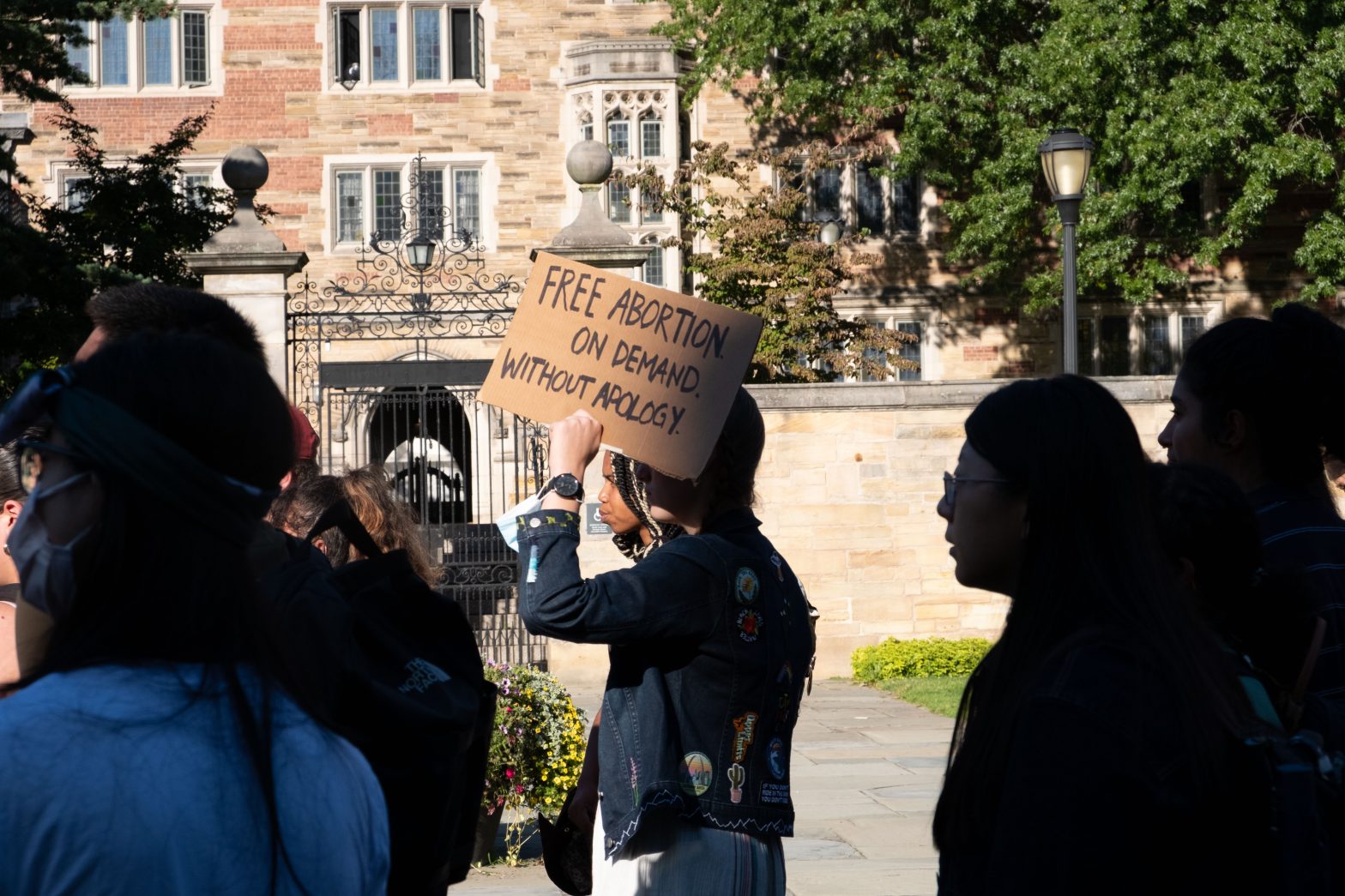When the Supreme Court released its decision on Dobbs v. Jackson Women’s Health Organization in June, Caitlyn Clark ’23 was hitting the gym. After hearing news of Roe being overturned, her routine workout became “this surreal experience of everyone walking around the gym, going about their daily lives, and just being like, holy shit, the rights of half of the country have just been taken away.”
***
Many Yale students echoed Clark’s emotions on the loss of reproductive rights and communicated their anger at an October 6 rally for the National Day of Student Action for Reproductive Justice on Cross Campus. The rally, organized by Yale’s chapter of the Young Democratic Socialists of America (YDSA), featured a slate of speeches on abortion and gender-affirming healthcare. Clark, a lead organizer for the event, explained that this rally was held to call on Congress to codify the provisions of Roe v. Wade.
Anika Seth ’25, another lead organizer for the rally, emphasized the importance of fighting for reproductive rights in the Yale community specifically, as several current members of the Supreme Court attended Yale Law School or Yale College. For Seth and the other organizers, the link between Yale and the Court implies that the university has an additional responsibility to rectify the harms of Dobbs. “The Federalist society was brewed and raised at Yale Law School right down that street,” Seth told The Politic. “Yale has a very strong role in complacency when it comes to total subversions of rights like this one that we’re witnessing.”
Seth expressed disappointment that Yale refused to release a formal statement defending abortion rights. She hopes that Yale takes action around this issue and will make other institutions in the United States follow suit. “When Yale does something the world watches.”
***
Some of the ralliers have been protesting for abortion rights legislation since high school. Caroline Kaplan ’25 began organizing in the reproductive healthcare space in 2015, after discovering the lack of access to such care in her rural, conservative Washington community. She joined this activism space in order to add to the work that current community activists have done while collaborating with them to learn more about how she can help them achieve their demands.
Along with abortion, Kaplan has always been passionate about the importance of sexual education. During her years of activism, Kaplan worked as a sexual educator and on the outreach team of her local Planned Parenthood. She also served as the head of the local YWCA’s Reproductive Health Committee and worked on a comprehensive sexual education bill (which became a referendum in 2020) as a head teen lobbyist.
“It was really common for a lot of young people to say, ‘I was raped, I was sexually assaulted, and I didn’t know that’s what happened to me, because I’ve never heard about consent before. I did not know that it was a word,’” she told The Politic.
***
Stories like these motivated Kaplan to restart Yale’s Reproductive Justice Action League (RALY). She already has plans to continue pushing for the demands that were made at the YDSA’s rally. Kaplan’s first step is to connect with similar organizations and independent organizers in the New Haven area, collaborate with them, and learn about what they need from the Yale community. Kaplan’s work is filling a hole in campus reproductive rights advocacy in the wake of the COVID-19 pandemic. At the same time, thoughtful campus advocacy like Kaplan’s can help Yale heal its relationship with the New Haven community by pushing for positive change that extends beyond the campus gates.
This change, Seth explained, must go beyond protests. “Protests do very little if we don’t put the energy into meaningful, actionable items,” they said. “If we don’t do work when we go home after the rally, we’re not really doing that much.”
Though the work for the fight for reproductive rights has historically been grueling and arduous, the Yale activists are up to the challenge. “We forget that the initial movement for abortion rights was accomplished through long organizing like this, difficult not very glamorous organizing,” Clark said. “That took a long time and required a lot of struggle. But we’re ready to do it again.”

